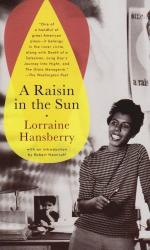|
This section contains 204 words (approx. 1 page at 300 words per page) |
A black American playwright who produced only two plays before her death from cancer at 34, Lorraine Hansberry nonetheless made a tremendous contribution to the American stage and to African American culture. Her first and best known play, A Raisin in the Sun (1959), winner of the New York Drama Critics Circle Award, is now considered a landmark of American drama. The story of the struggling Younger family, who aspire to a better life, A Raisin in the Sun was the first Broadway production by a black woman, and its commercial success opened the stage doors to other black writers. The Sign in Sidney Brustein's Window, Hansberry's challenging but commercially disappointing second play, followed in 1964. Posthumously produced plays To Be Young, Black, and Gifted (1969), Les Blancs (1970), and What Use Are Flowers? (1972), adapted by her ex-husband and literary executor Robert Nemiroff, confirm Hansberry's great ability to combine artistic integrity and skill with commitment to social reform.
Further Reading:
Carter, Steven R. Hansberry's Drama: Commitment amid Complexity. Urbana, University of Illinois Press, 1991.
Cheney, Anne. Lorraine Hansberry. Boston, Twayne, 1984.
Leeson, Richard M. Lorraine Hansberry: A Research and Production Sourcebook. Westport, Connecticut Greenwood, 1997.
Scheader, Catherine. They Found a Way: Lorraine Hansberry. Chicago, Children's Press, 1978.
|
This section contains 204 words (approx. 1 page at 300 words per page) |


